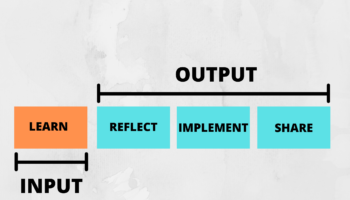In today’s world of economic turmoil, I believe that the key to building up Canada’s economy is by strengthening Canadian businesses. Over 69.7% of the Canadian private labour force in 2012 worked for small businesses, start-ups and professional businesses. Small businesses are therefore the backbone of our economy and create the added benefit of strengthening our working and middle class population, thereby creating a more equitable society. By coming along side our clients and helping them to strengthen their business, we contribute to creating an economically healthier society and a more socially and politically equitable Canada. This is the purpose that drives us. We accomplish this goal by marrying our specialist knowledge in accounting, audit and tax with a personal relationship with our clients that offers them the most financially sound guidance and plan they need to take their business to the next level.
Communicating why we do what we do builds a bridge to clients, employees and stakeholders and allows us to form an emotional bond with stakeholders. An important fact that separates businesses with great results, longevity and market impact from those barely chugging by is how and if they are communicating their purpose effectively to stakeholders. What companies who have taken the time to define their purpose have over those that have not is that they are able to garner unto themselves others who share the same belief to assist in the success and mission of their business. It also acts to inspire clients and employees to give their best to the company and to personalize the business’s purpose and make it theirs. Stakeholders therefore become the business’s biggest advocates.
Most businesses that have achieved significant clout in the last few decades have done so due to having a purpose that engulfs more than their personal success. For Google, their purpose was to create an amalgamation of data into one search engine to enable ordinary people to have ready access to information at their fingertips at the touch of a button. People identified with this purpose and the result is the multibillion dollar company they have become. Tesler wanted the joy of creating amazing fast cars powered only by electrical power, a feat that GM and other big car companies of the time thought was impossible. For their belief they were rewarded with the loyalty of their clients and product and price differentiation from other competitors. For Intuit, their passion was the simplification of accounting and tax filling so that accountants, entrepreneurs and the lay man could do their accounting and taxes without much difficulty. Their reward is the loyalty of their millions of clients all over the world who use products such as quick books to manage their businesses. The list of purpose driven businesses is endless; companies like Nike, Apple, and Kellogg are all noteworthy mentions.
Businesses and leaders driven by purpose are easy to identify because their purpose becomes the fuel that not only pulls them through the tough times as it did for Nelson Mandela, Thomas Edison, and Madam C.J Walker, but also allows such businesses and leaders to change their industry and leave a mark on the world. The purpose of your business becomes the life blood that drives and influences employees, partners, and owners into a common vision for the business. Beliefs/purpose are not only important for large businesses but for small ones as well. Many professional businesses, start-ups, non-profits would benefit from defining a belief system for themselves. Advantages include high sales, loyalty from clients and employees and price protection by differentiating yourself from competitors. In today’s highly competitive market environment, developing the why for your business is crucial to your long term success. Simon Sinek, author of ‘Start with the Why’ explains below why letting your clients, employees and other stakeholders know why you do what you do should be a key component of your business success strategy. Sinek’s idea is that what separates successful companies from those that are not is that successful businesses focus on why they do what they do first and then they explain how their product or service works and what they are selling. I hope you are convinced of the importance of defining and communicating your business purpose to your stakeholders. For greater insight into this topic please look up Simon Sinek’s TedX Talk at www.ted.com.






